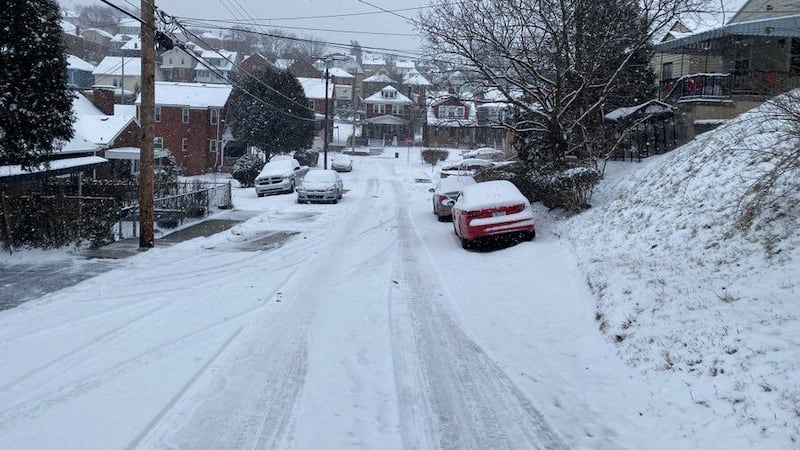We have all been waiting for our roads to be plowed and salted after this most recent snowstorm, but with this comes the possibility of corrosion to our vehicles, which could be very costly.
Alan Cannella owns Al’s Service. He’s been on Forest Grove Road in Robinson Township for 40 years. Year after year, he sees what treating our roads does to our cars.
“Everyone says what a fantastic job all the townships are doing taking care of the roads, but the calcium chloride that they’re adding to the rock salt is destroying the undercarriages of these automobiles,” said Alan Cannella.
A big safety concern is brake line rust damage.
TRENDING NOW:
“Depending on what is affected, brake lines are a few hundred dollars,” said Cannella. “But if it affects the frame and the structure integrity, it could be unrepairable for safety reasons.”
To try to minimize this, Cannella suggests selecting a car wash that offers an undercarriage spray, and if you can’t get your car cleaned right away, to consider leaving it outside overnight instead of pulling it into your garage if you have one.
“What I see is the oxidation process is going to start after you take a car from 20 degrees outside with salt on it and put it into a 50- or 60-degree garage,” said Cannella.
Cannella also suggests checking your fluids, your tire pressure and your tread depth. Keep up on your oil changes and always make sure your tank is at least half full.
“Probably wouldn’t be a bad idea to carry a small bag of rock salt in your car in the wintertime just in case you would have an issue where you got stuck,” said Cannella.
AAA also recently released some recommendations:
- When possible, limit driving immediately before, during and after winter storms when salt and de-icing solutions are being applied and are at their highest concentrations.
- Frequently wash your vehicle, paying particular attention to the undercarriage. This will loosen, dissolve and neutralize road salts. Many drive-through car washes offer an undercarriage rinse as an option.
- Always use a high-quality car wash solution, not a household dish detergent that will strip the wax from your vehicle.
- Repair any body damage and touch up paint scratches and chips that expose bare metal which could lead to rust.
- Give the entire vehicle and undercarriage one last cleaning in the spring. Any deposits left over from winter can continue to cause corrosion year-round if not properly removed.
AAA strongly urges drivers who experience any of the following vehicle malfunctions to immediately move the vehicle off the road to a safe location and have it towed to a trusted AAA Approved repair facility:
- In-dash warning lights for brakes and other critical systems.
- A “spongey” or soft feeling when applying pressure to the brake pedal.
- An unusually loud exhaust sound or the smell of fumes in or around the vehicle.
- The prominent smell of gasoline or diesel fuel when the vehicle is running or parked.
©2022 Cox Media Group






